Copywriting 101: The One Copywriting Guide to Rule Them All
Copywriting 101: Learn how to create effective copy. We cover what copywriting is, types of copywriting, andthe top tips and rules for creating great copy.
Updated November 7, 2024.

The average person sees 4,000 to 10,000 ads every day and only engages with 5% of them. More than 95% of the world’s ads are completely ignored.
You don't want your ads, content, or social media posts to be in that category. You want your brand to stand out. And good copywriting is a crucial ingredient in achieving that.
In this article, we take a closer look at copywriting: what it is, how to do it well, and what to do to perfect your skill.
Read on to find out more.
What is copywriting?
Copywriting is the art of creating persuasive messages in order to convert potential customers into paying customers. The product, called copy or sales copy, is written content that aims to increase brand awareness and ultimately persuade a person or group to take a particular action.
Copywriting can be really hard to master because it requires so many other overlapping marketing skills, which can include:
- Knowing how to write in a conversational tone that captures the attention of your target audience
- Researching and understanding market trends and customer behavior
- Knowing how to gain a deep understanding of your target audience AND the products or services you're promoting
- Ability to work creatively and conceptualize ideas that get people's attention
- Knowledge of how other areas of digital marketing work
- Having a thorough understanding of marketing strategy
- Knowing how to create and optimize copy for various communication channels
- Learning how to work with designers and Creative Directors to create ads and content that's enticing and compelling
That seems like a long list of skills to acquire, for sure. The good news is that it’s all possible. There are many resources you can use in the learning process (and many of them are free). You can totally nail your copy if you stay consistent and dedicate time to it.
What is a copywriter?
A copywriter is a person who crafts persuasive messages, communications, and stories to engage audiences and make them interested in your products or services.
The message a copywriter creates is called "copy" and it can be used on ads, emails, websites, landing pages, sales letters, social media posts, and any other platform you reach your target audience. They usually work in-house, as freelancers, or with digital marketing agencies.
Who uses copywriters?
Copywriters are used by virtually any type of business, large or small, B2B or B2C, in every industry. Often, copywriters are either freelancers or work for an advertising or content marketing agency. However, many copywriters work in-house as well (e.g. you will find a lot of in-house copywriting experts in the SaaS industry.)
In other words, if you run a business and want to make sure your target customers know about your products or services, you will need a copywriter.
What's the difference between copywriting and content writing?
Although similar in many ways, copywriting and content writing are quite different in scope and purpose. Content writers create educational or informative pieces to educate readers and help them solve a problem. Copywriters create more persuasive messages to encourage and motivate readers to take a specific action.
To give you an example, a content writer will usually create a blog post or a white paper, while a copywriter will create an ad or a Black Friday email sequence. A content writer can write copy and a copywriter can write content -- but writers frequently specialize in either of the two.
What does a copywriter do?
The copywriter's job description might differ from one company to another. However, narrowed down to the basics, it will almost always cover:
- Writing copy to inform or inspire an audience
- Writing texts that make people take an action
- Running in-depth research for the topic at hand (to find statistics, information, brand-related facts, and more)
- Running keyword research for SEO purposes
- Brainstorming ideas for campaigns or projects
- Managing multiple copywriting tasks simultaneously, according to the marketing plan
- Proofreading and editing
- Collaborating with other members of the marketing team on a variety of projects
Who needs copywriters?
Working with good copywriters is crucial, and here's why:
- They know how to speak to your target audience
- They help you make sure your marketing assets are polished from a linguistic standpoint
- They craft texts that attract & convert people
- They help your business stand out in an ocean of websites, landing pages, and sales pitches
Knowing how to get people's attention with your words and ideas is priceless. Copywriting does just that: it grabs people’s attention, hooks them, and brings them closer to your business.
Everyone needs copywriters. Any business, from small startups to large corporations, can benefit from the skillset of a copywriter, regardless of their industry and whether they serve a B2B or a B2C audience.
Types of copywriting
When you think of copywriting, most people think of ads.
That's not wrong, writing advertising copy is, after all, a huge part of what copywriters do. But there are a few other types of copy that are super important as well. Knowing exactly what you need is essential for strong marketing assets.
Web copy
This type of copy is usually written for web pages (homepages, comparison pages, landing pages, digital ads, and case studies. In some cases, people will consider blog posts, emails, digital video scripts, and chatbot scripts as "web copy" as well.
Product copy
Product copy is a type of copywriting dedicated to describing a product and its features. If you run an eCommerce or a SaaS business, you will likely use a product copywriter to create content for your product pages, product emails, and product-driven ads.
You might also need product copy for brochures, catalogs, product flyers, and other promotional materials for your offline marketing channels.
Content marketing
Content marketing is a form of copywriting that focuses on creating educational, entertaining, or informative pieces to engage with an audience. Blog articles, white papers, reports, and educational video scripts all fall into this category.
It is worth noting that content marketing is frequently considered to be a branch of copywriting (although content and copy are written for different purposes). For example, eCommerce content writing might sometimes include writing blog articles and newsletters on how products can be used to achieve a specific goal.
Social media copywriting
Social media copywriting specializes in writing copy for social channels (Twitter, Facebook, LinkedIn, Instagram, etc.) It can be used for both organic social media posts as well as copy for social media advertising campaigns.
Depending on their purpose, the texts can be written for organic purposes (social media posts) or advertising (social media campaigns.) Sometimes, social media copywriting includes writing short-form and long-form video scripts as well (for TikTok videos and Instagram Stories).
Psst, overwhelmed by all your marketing channels? Get it all organized by using our bombastic marketing plan template.
Direct response copywriting
Direct response copywriting is a form of copywriting that focuses on "persuading" a reader to take an action – usually signing up for a service, buying something, or contacting business representatives. Sales letters, marketing emails, webinar scripts, and even ads frequently fall in the direct response category.
SEO copywriting
This type of copywriting focuses on optimizing web pages and blog posts to rank higher in search engine results and it usually combines traditional copywriting skills (persuasion and storytelling) with SEO knowledge (keyword research, link building, and more.)
Technical writing
Technical writing isn't meant to be as persuasive or entertaining as the other types of copy. It is meant to explain complex topics in a straightforward, easy-to-understand manner. Technical writers are usually employed by tech companies to create product manuals, FAQ pages, help centers, and so on.
Copywriting tips - master the art of writing copy
There are a ton of tips on how to write great copy but they all boil down to three things - you have to know your audience, do your research, and talk about the benefits and not your product features. Let’s look at each one in depth.
Know your audience
It doesn't matter what kind of digital marketing campaign you’re working on. Without a comprehensive understanding of your target audience, you're working in the dark. You need to know who your ideal customer is.
Without knowing who you’re talking to you run the risk of having ineffective messaging that’s too vague or doesn’t match the right tone of voice to engage with your audience.
So take the time to know your current as well as prospective customers. Look at your Google Analytics data, customer surveys, customer interviews, and listen to sales calls. Get your hands on whatever you can to design an almost forensic portrait of your ideal clients.
Do your research
This goes beyond just the basic audience research. You need to learn about your market, your competition, and your product to craft truly compelling copy. This kind of in-depth investigation will help you create copy that entices and persuades your potential clients.
Talk about benefits, not features
People don't want to go through long lists of features when they buy something. They want to know what's in it for them and how those features will make their lives easier, happier, more entertained, or more efficient. So experienced copywriters focus more on the benefits of a product and weave in the features into the copy.
3 cardinal rules of copywriting
There are three golden rules all good copywriters should follow, regardless of what they're working on:
1. People don't like to be sold to
It doesn't matter who your ideal customer is: nobody likes being sold to. As a copywriter, your goal is to help your reader make a decision, not pester them into buying your product.
2. People buy things for emotional, not rational reasons
Most purchases are irrational. We buy to fill a need, solve a problem, or fulfill a fantasy -- but we seldom decide on a specific product based on rational reasons. Even the most seemingly rational purchases we make are associated with emotions.
For example, if you're in the market for cybersecurity services, you will not necessarily buy from a company that has the best technology on the market. Chances are, you will buy from a company that inspires trust and knows how to tap into your fear of becoming a cybercrime victim.
3. Once sold, people need rational reasons to satisfy their decision
Once someone has made a purchase decision, they need to feel good about it. This is where rational reasons come into play. Good copywriters can bring logical arguments to the table to back up the emotional reasons they've already presented.
Going back to our cybersecurity example, the rational reasons behind a purchase would center on cybersecurity stats, success rates, and detailed processes the company uses to ensure its clients' data is protected.
Start with a hook
Headline writing is one of the single most important skills a copywriter can possess. Some studies suggest eight out of ten people will only read the headline.
It doesn't matter how great a sales page or article or email campaign is - if the hook isn't doing its job, your visitor is not going to convert. So it’s crucial that you learn how to write good hooks to get your dream client's attention.
"All the elements in an advertisement are primarily designed to do one thing and one thing only: get you to read the first sentence of the copy." - Joe Sugarman, copywriting legend and best-selling author
Write persuasive copy
For a piece of content to be persuasive, it needs to empathize and connect with your readers. Copywriters must use their words to influence readers, either to purchase a product or service, or to take some other action (like signing up for a newsletter, downloading a freebie, or attending an event).
To do this, copywriters must understand their ideal audience and write in a way that engages them. They should use persuasive techniques like storytelling, crafting compelling headlines and calls to action, as well as speaking the language of their target market.
End with a clear call to action (CTA)
Whatever type of copy you're writing, make sure you always end with a clear call to action. What is it you want your audience to do once they're done reading? Should they follow you on social media? Sign up for your newsletter? Try your product?
Whatever the goal of your piece may be, make sure your final CTA is clear, compelling, and actionable.
How to become a good copywriter
Strong writing skills revolve around consistent practice, attention to detail, and a thorough understanding of human psychology. The copywriting industry is super competitive and skilled copywriters aren't born overnight. They are forged in the fires of resilience and continuous learning.
If you want to pick up copywriting as a skill, be sure to do the following:
1. Learn the basics of copywriting from books
Books are an excellent resource for learning how to write copy. Some of the very best books on copywriting include:
- The Adweek Copywriting Handbook by Joseph Sugarman
- Scientific Advertising by Claude Hopkins
- Ogilvy on Advertising by David Ogilvy
- The Copywriter's Handbook by Robert Bly
- Everybody Writes by Ann Handley
- Influence: The Psychology of Persuasion by Robert Cialdini
- Breakthrough Advertising by Eugene Schwartz
- The Elements of Style by William Strunk Jr.
2. Choose a copywriting specialty
This is not an absolute must, but choosing a copywriting specialty will help you laser-focus your skills and become an expert in your field. Copywriting specialties can include SEO copywriting, B2B copywriting, web copywriting, email copywriting, and more.
3. Write some copy for yourself or friends
You may not get paying clients on the first go, but you can practice your writing by picking up some freelance projects for friends or family. This is a great way to get real-world experience and hone your craft.
If that's not an option, you can also write copy for yourself. Start a blog, build an audience on social media, create an email newsletter, and create some ads for it.
4. Get your first gig
There's no magic recipe for getting your first gig as a copywriter: it's all about consistency, showing up, and pitching potential clients.
Platforms like UpWork or Fiverr are great for beginners, but competition there might be very fierce. Alternatively, building a presence on Twitter or LinkedIn can help you get more eyeballs on your work, so you can eventually land your first client. Likewise, joining copywriting communities on Discord, Slack, Reddit, or Quora can also help you create a network and increase your odds of being hired.
5. Build your reputation
Deliver your best work, every time. Gather testimonials, measure your results, and document your process every step of the way. Build a reputation by providing top-notch writing, so clients can trust you in the long run. Be open (and ask) for feedback, learn to perfect your skills, and never stop learning.
6. Ask for referrals
Building a pool of dream clients is hard -- but referrals make it easier. There's nothing like social proof to help potential customers understand the value you provide.
The more referrals and social media reviews you collect, the easier it will be to land new gigs. So don't forget to ask your satisfied customers to spread the word.
Takeaways
Copywriting may seem easy, but it requires diligence, hard work, and a good dose of creativity. If you want to become a good copywriter, start by learning the basics, reading as much as possible, and practicing as much as you can.
If you're just starting, don't worry about finding your niche. Test your skills out, perfect them, and only narrow down and specialize when you're ready and when you know what works best for you.
Last, but not least, be resilient. Copywriting isn't for the faint of heart. You will fail (massively, and probably often.) You will be rejected. Your puns will be deleted. Some of your clients may sometimes be picky. Expectations will almost always be high.
Stay persistent and work on your copywriting every day. Walk the walk, talk the talk, and write your way into success.
FAQs
What is a marketing copywriter?
Marketing copywriters prepare written content to encourage consumers to purchase specific goods or services. Copywriters create compelling, enticing, and persuasive texts meant to be used for marketing materials (such as web pages, email marketing campaigns, ads, and brochures).
What is SEO copywriting?
SEO or search engine optimization copywriting, is a type of copywriting focused on writing copy optimized for search engines (predominantly Google). It requires excellent writing skills and solid SEO knowledge, as copywriters in this niche are frequently expected to research keywords, create SEO-friendly information architecture, and optimize content based on SEO best practices.
What is creative copywriting?
Creative copywriting is the art and science of crafting content that connects concepts to products and services in a unique, compelling, and interesting way.
What are the benefits of hiring a copywriter?
Some of the biggest benefits of hiring a copywriter include:
- Generating copy that's attractive, convincing and leads to conversions
- Saving yourself and your team the time it takes to craft effective marketing messages
- Presenting quality content and copy to your audience
- Making sure your copy has no inadvertent grammar issues
- Optimizing your website copy for SEO
Why does quality copy matter for a business?
Quality copy attracts and/or entertains readers, resonates with them, and persuades them into performing a specific action (e.g. buying a product, signing up for a trial, enrolling in an email list, and so on.)
What are examples of copywriting?
Some examples of famous copywriting include:
- Apple's tagline
- Nike's ads
- ClickUp's video ads
- Coca-Cola's storytelling
Is copywriting a good skill?
Yes! Copywriting is an excellent skill to have! Every business needs a good copywriter and professional copywriting is in very high demand right now. Also, even if you don't want to become a professional copywriter, learning how to write copy can help you write better, more convincing messages, improve your conversion rate, express your ideas coherently and persuasively, and, overall, bring more attention to you and your work.


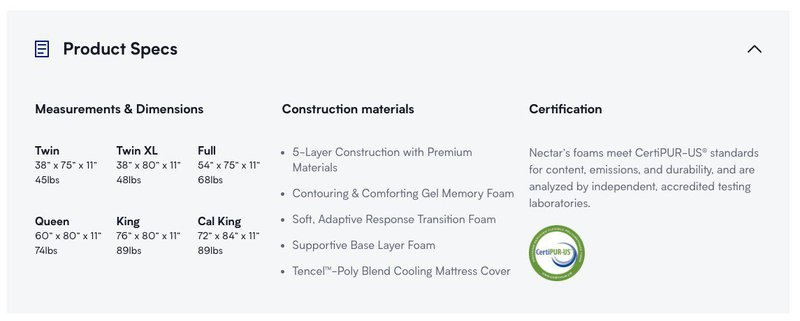
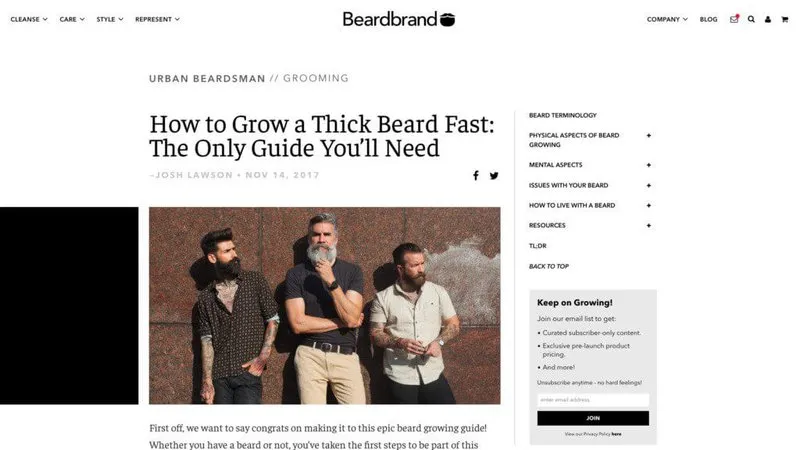
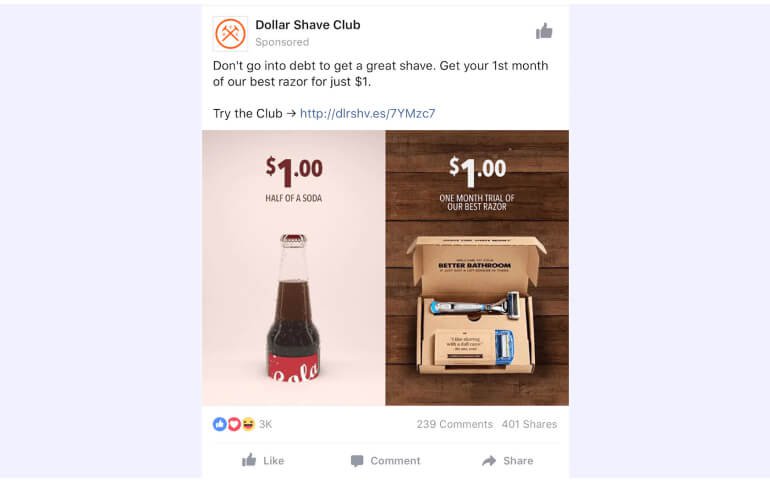
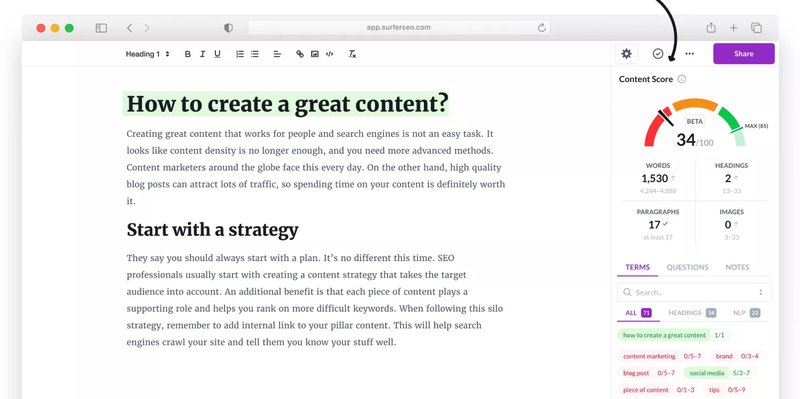


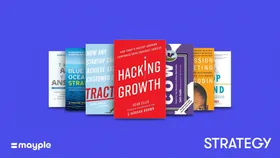

![Top Digital Marketing Consultant: How to Find and Manage them for Your Business [2024]](https://entail.mayple.com/en-assets/mayple/fit-in/280x280/650070b8c8c80bf7ae5e4c13_555_d7518f0da75e1122a1f4a4e71331cf85_2000-1699518339641.jpg)
